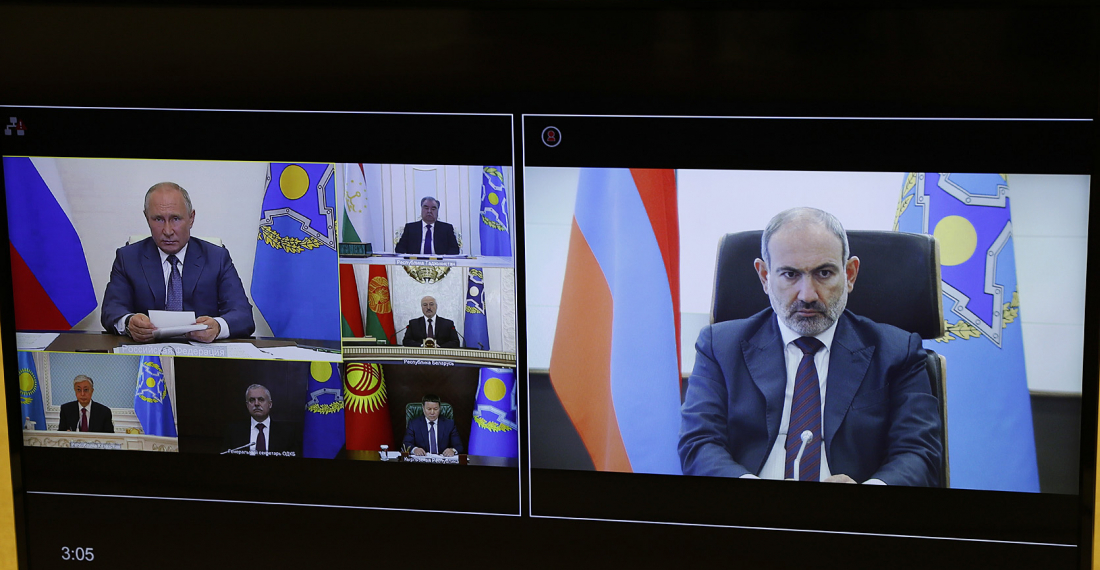Russian President Vladimir Putin has referenced the “courage” of Armenian Prime Minister Nikol Pashinyan in signing the ceasefire agreement that brought an end to the recent fighting over Nagorno-Karabakh.
According to the Russian news agency Interfax, speaking today (2 December) at a virtual meeting of the Collective Security Treaty Organization (CSTO), the Russian President acknowledged the difficulties faced by the Armenian leader in making this “necessary” decision. He told the CSTO member states:
"our task is now to support both the Prime Minister himself and his team"
Since signing the Moscow-negotiated peace agreement between Armenia and Azerbaijan on 10 November, Pashinyan has faced criticism from Armenians at home and abroad. The agreement put an end to the fighting, which began on 27 September, but also ceded all previously occupied Azerbaijani territories surrounding Nagorno-Karabakh and allowed the deployment of a Russian peacekeeping force on the disputed territory.
In his statement to the alliance, Pashinyan referred to the Russian peacekeepers as “the guarantor of the preservation of peace and security in the region”. He also highlighted “the exceptional role played by Russian President Vladimir Putin”, noting that he was still working very closely with the Russian leader “to solve such problems as the search for missing people, the exchange of prisoners of war and dead bodies”.
The CSTO is a military alliance formed in 1992, which includes the former-Soviet states of Armenia, Belarus, Kazakhstan, Kyrgyzstan, Russia, and Tajikistan.






